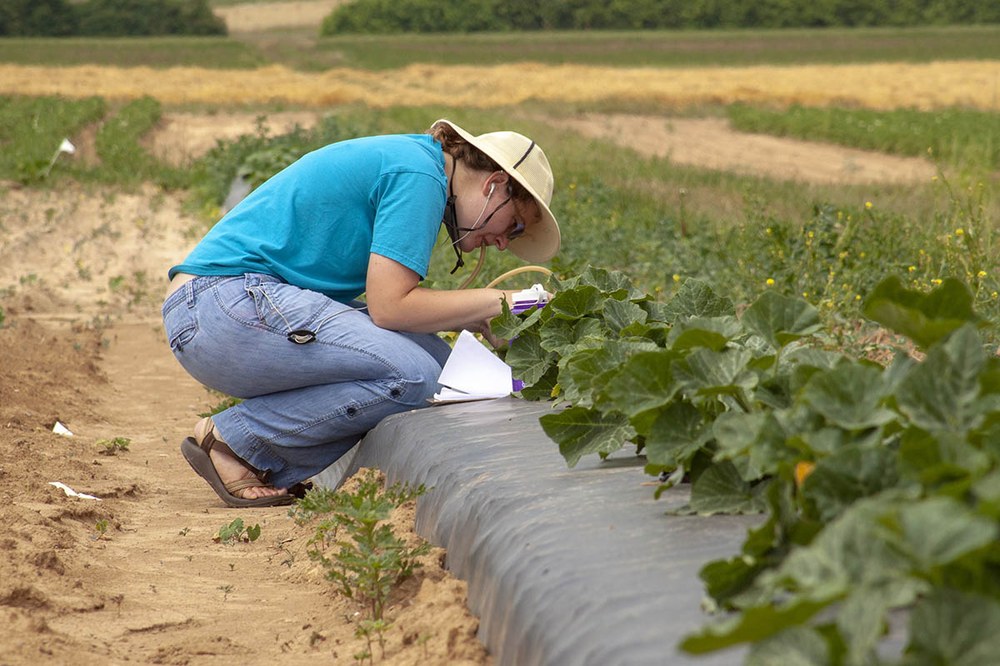Requirements and guidelines for the doctor of philosophy degree in Entomology.

A student works in the field toward the doctor of philosophy degree in Entomology.
The degree of Doctor of Philosophy signifies high scholastic achievement and demonstrated capability to perform independent research. Five academic years of full time graduate work beyond the bachelor's degree are often required; four years is more typical for students that have earned a Master degree. Some of this work may be completed off-campus or on a part-time basis. However, between the time of acceptance as a candidate and completing the degree requirements, the student must spend two academic sessions in residence within a twelve-month period.
Students commencing a doctoral program may have a small provisional committee appointed as soon as the advisor is selected. Students and their advisors should identify and invite faculty of appropriate experience to serve on the student's official doctoral committee, which needs to be approved by the Department Head and appointed by the Graduate Dean through the office of Graduate Enrollment Services after the student has passed the qualifying exam. Doctoral committees for students in the entomology program include at least three members from the department, at least one member from a related field, and a total of no fewer than four members; five members are recommended. If the student has a formal minor or is pursuing a dual-title degree, a representative of the minor or dual-title field must be on the committee.
By the end of the student's third semester they should sit for the departmental qualifying exam, which is administered each semester as necessary by a standing committee. For details on the qualifying exam, read here.
The official doctoral committee should be established by the end of the student's fourth semester on campus (not including summer semesters). Once you have established your committee, work with Graduate Program Coordinator to officially submit the committee membership to Graduate Enrollment Services. Students are required to meet with their official doctoral committee at least annually and should also review committee membership each year. If membership changes need to occur, notify the Graduate Program Coordinator. The committee on record with the Graduate School needs to match the committee present for the comprehensive and final exams or the student may not be able to sit for these exams. For a detailed description of the comprehensive exam, read here.
The student and committee should meet as early in the degree process as possible to plan the student's Ph.D. program and approve a thesis project. It is possible for a student to change advisors, when appropriate, without prejudice. The doctoral committee guides and monitors the student's progress, administers the comprehensive and final oral examinations, and evaluates the dissertation. Attendance at these exams must comply with the departmental policy for benchmark exams. Information found here.

